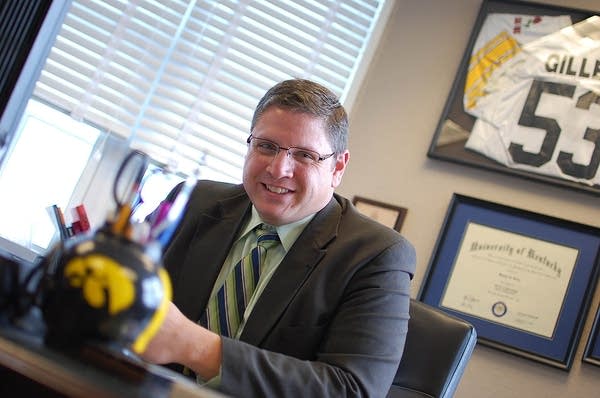Forced to Choose: People to Watch
Go Deeper.
Create an account or log in to save stories.
Like this?
Thanks for liking this story! We have added it to a list of your favorite stories.
As communities face tight budgets and calls for more efficient government, leaders have accepted the challenge to varying degrees. Some have stepped up with new ideas and are forging the path toward reinvention.
Here are a half dozen such people to watch.

Shawn Gillen, Grand Rapids city administrator - To adjust to a shrinking funding pot, many cities instinctively froze spending. But Grand Rapids did the opposite, devising a plan for the city to borrow money from itself to invest in technology that saves money in the future. The man behind this proactive approach is Gillen, who arrived in Grand Rapids four years ago, in time for the worst recession in generations.
"We had basically this economic tsunami coming at us, and what we said was, 'let's head for the hills and not just ride it out, but let's figure out a way to live like this was a permanent situation, not just waiting for things to go back to normal.' "
Turn Up Your Support
MPR News helps you turn down the noise and build shared understanding. Turn up your support for this public resource and keep trusted journalism accessible to all.

Tony Murphy, Beltrami County administrator - When it comes to redesign, the holy grail of the moment is "outcome-based" government, which means measuring services by the measurable good they do. Beltrami County has been practicing this type of government since 2007, largely thanks to Murphy, who has become a darling of the redesign movement.
Murphy went to the state to get permission to provide two years of education to promising welfare recipients rather than the more standard one year. The plan increases the county's up-front costs somewhat, but is expected to reap savings in the long run. "Rather than just running the welfare program, the goal ought to be getting people out of poverty," Murphy said. "What we have found is if you are thinking seriously about outcomes, your investment strategy changes. You invest more in prevention than in high-cost deep end services."
[image]
Tim Riley, Pope County Sheriff -- In western Minnesota, a multi-jurisdictional SWAT team handles high-risk warrants and emergencies like drug raids and hostage standoffs. Formed in 2007, the operation has 13 members from nearby county and city agencies along with the University of Minnesota Morris campus police.
Riley is one of the original team members and its current chair. "We don't have a department with 52 deputies where we can all work by ourselves," he said. "We have to work together with our neighbors."

Sandy Tubbs, public health director for Stevens, Traverse and Grant Counties -- Public health has been out front when it comes to efficiency, said Tubbs, who works in Morris but directs public health services for three western Minnesota counties.
"Delivery of population-based services as opposed to individual-based services makes it easier for us to partner with counties and sort of ignore that county line," she said. Still, there are difficulties. When Tubbs works with county social services departments, "I have three social services directors I need to meet with. The difficulty isn't with our arrangement, but sometimes you have to triple your efforts."

Rep. Carol McFarlane, R-White Bear Lake - If local governments are to make headway redesigning the way they deliver services, the state is likely to need to play a role, even if that means simply "getting out of the way" by eliminating impediments to a drive for efficiency.
McFarlane has been a key player in pushing what is known as the MAGIC Act, designed to remove obstacles to change and to encourage pilot programs. She also was involved in 2011 in a series of sessions held around the state to encourage school, city and county officials to think anew about collaborations and shared services.

Jeff Kletscher, Floodwood mayor - Kletscher and other leaders in the city of Floodwood, population 530, made tough choices in response to cuts in aid funding from the state. They raised taxes, they pulled back on road maintenance and they got more aggressive at pursuing grants to fill in the gap.
Kletscher, who's also president of the Minnesota Association of Small Cities, has at times even found himself behind the wheel of a snowplow, filling in for a vacationing city employee. "Small communities across this state are suffering tremendously," said Kletscher. "The ones that are really struggling are those that are 250 or less in population, where your number of taxpayers is just so small. You raise the taxes and it just drives folks away." Kletscher says some small towns are just "one disaster away... from things going bad."


